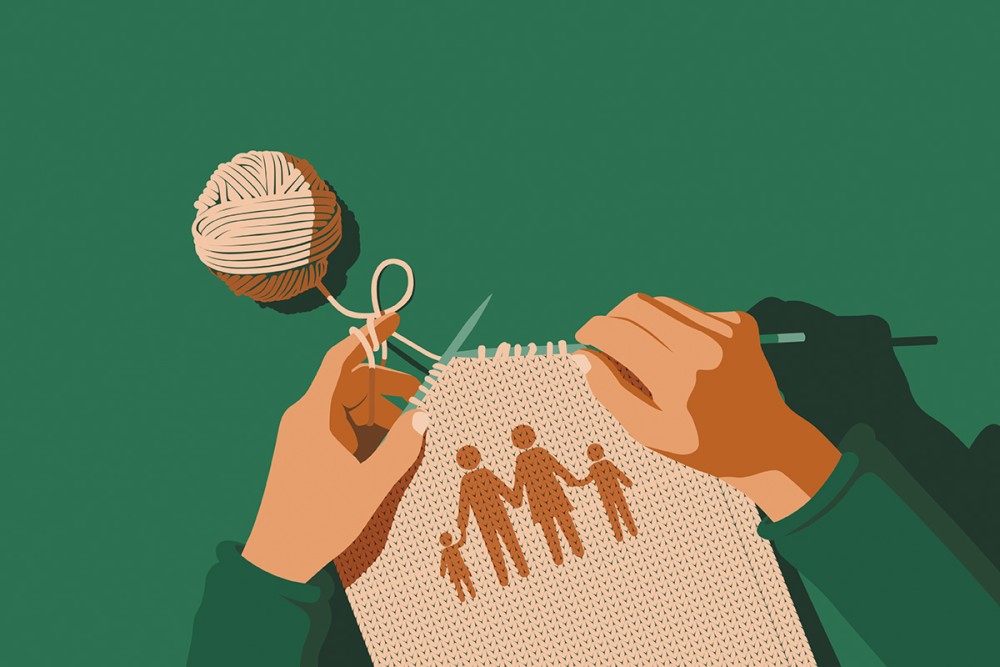Knitting with Simone Weil
The philosopher’s call to attention reminds me I’m making a difference.

Istart my mornings by emailing everyone at my organization a roundup of immigration headlines and news. I’ve been working on the communications team at the National Immigrant Justice Center since I left divinity school in 2019. I love my job, and on the best days, I feel like I’m really making a difference. On the worst days, though, the days when news breaks about yet another way our country mistreats immigrants and I’m formatting HTML for the press release denouncing it, I feel like my job is grindingly, achingly slow, like nothing I’m doing actually matters.
This is magnified by those morning emails. I’ve copied and pasted headlines about the continued separation of families, nonconsensual sterilizations of detained immigrant women, mass shootings in Latinx communities by White supremacists, and Haitian migrants being whipped by Border Patrol officers on horseback. Whatever I do for the rest of the day, the knowledge that this is going on keeps simmering in the back of my head.
There’s something particularly agonizing about a dull work meeting during what otherwise feels like a crisis. Yes, it’s important to ensure all our projects are on track, the reports and graphics to show the public yet again that there’s a problem we’ve all been trained to ignore. But during a crisis, it always feels like my job ought to be something else—being on the front lines, doing something, anything, with my physical body to help. Instead, there’s shared Google Docs and Zoom.





